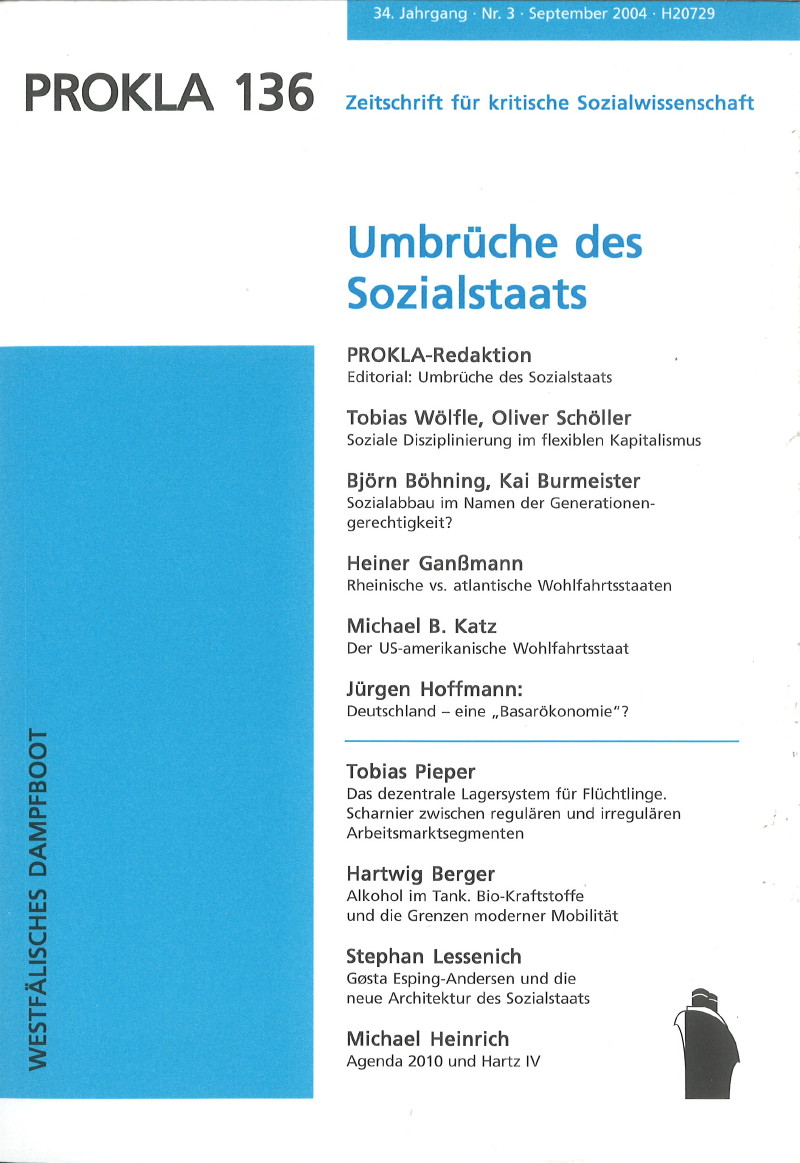Deutschland – eine „Basarökonomie“?
Globalisierung, „global sourcing“ und das „Modell Deutschland“
DOI:
https://doi.org/10.32387/prokla.v34i136.623Keywords:
Deutschland, Globalisierung, Ökonomie, InternationalisierungAbstract
A prominent current discourse on German economy sees Germany – due to outsourcing and global sourcing strategies – becoming more and more a “bazaareconomy”, in which the share of German based added value of products is decreasing rapidly. The reasons are seen in high labour costs and “sclerotic” labour markets under pressure of globalised markets – therefore neoliberal policies seem to be the only remedy against the so-called “German disease”. These arguments are qualified by discussing the globalisation hypothesis, analysing the contradictions of outsourcing processes and putting the stress upon factors of localisation and the dominant role of regions in globalised markets. Instead of speaking of a “bazaareconomy”, the authors’ identifies a process of re-allocation of production in internationalised markets and policies of strengthening the existing high level of regional infrastructures would underpin the high productive “Rhineland capitalism”, while neoliberal policies tend to destroy its comparative advantages. The same applies to microeconomic actions of capital reducing investments in favour of short term high profits abroad and thus initiating a vicious circle: the loss of investment would undermine the high productive regional networks as a pillar of “high quality – high qualification – high wage”-production in Germany and thus investment would become less attractive.






